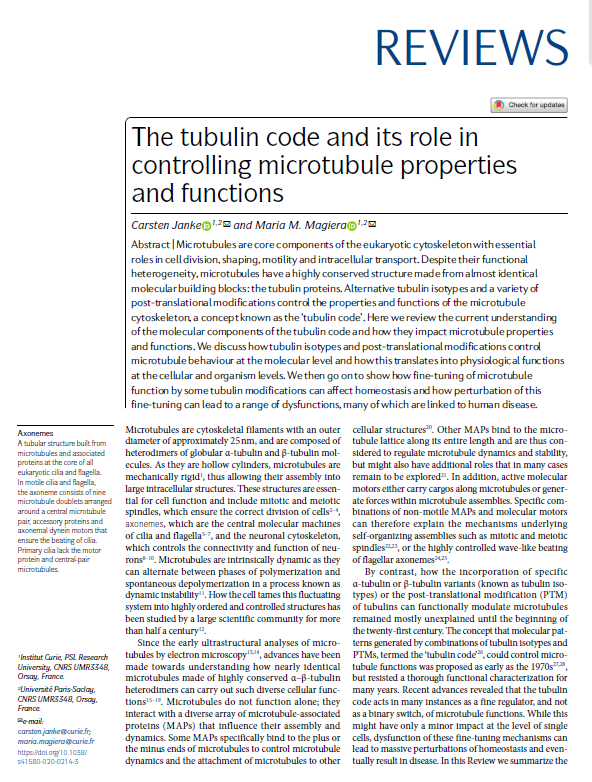Science News
The tubulin code and its role in controlling microtubule properties and functions
Mar 12, 2021 | News

Microtubules are core components of the eukaryotic cytoskeleton with essential roles in cell division, shaping, motility and intracellular transport. Despite their functional heterogeneity , microtubules have a highly conserved structure made from almost identical molecular building blocks: the tubulin proteins. Alternative tubulin isotypes and a variety of post- translational modifications control the properties and functions of the microtubule cytoskeleton, a concept known as the ‘tubulin code’. Here we review the current understanding of the molecular components of the tubulin code and how they impact microtubule properties and functions. We discuss how tubulin isotypes and post- translational modifications control microtubule behaviour at the molecular level and how this translates into physiological functions at the cellular and organism levels. We then go on to show how fine- tuning of microtubule function by some tubulin modifications can affect homeostasis and how perturbation of this fine- tuning can lead to a range of dysfunctions, many of which are linked to human disease.
Written by tubinAD
